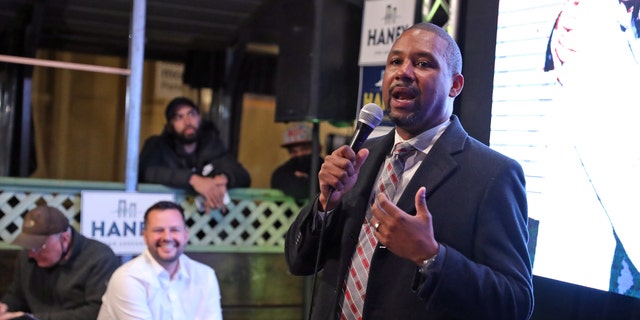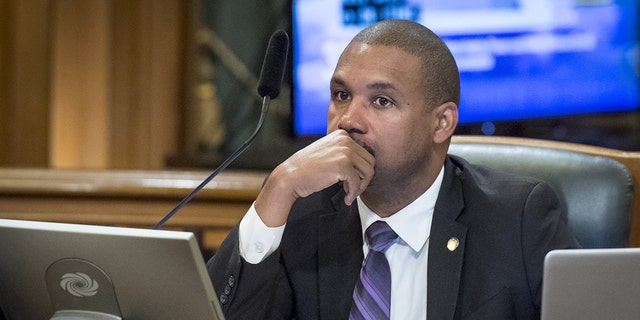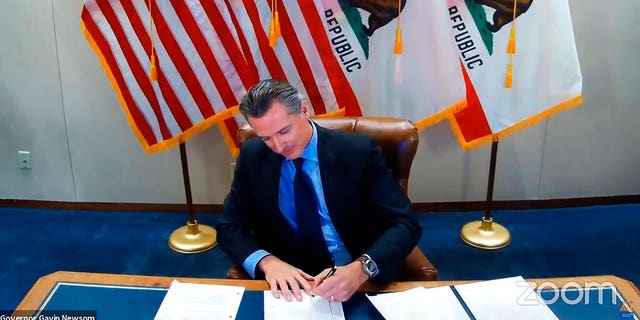San Francisco considers reparations proposal to give $5 million per Black person
The San Francisco Board of Supervisors is meeting Tuesday to review a proposal to dole out $5 million each to qualifying Black residents in reparations as a way to make amends for slavery.
At the board meeting, the city’s African American Reparations Advisory Committee will present the controversial idea, along with dozens of other recommendations from its draft reparations plan released in December.
The other recommendations range from offering grants to buy and maintain homes to exempting Black businesses from paying taxes. But the $5 million lump-sum payment has garnered the most attention — and controversy.
The Board of Supervisors can vote to adopt all, none, or some of the committee’s recommendations and even change them. Tuesday’s hearing was originally scheduled for last month but was postponed.

SAN FRANCISCO REPARATIONS PROPOSAL WOULD DESTROY CITY’S BUDGET, SUPERVISORS CAUTION
An estimated 50,000 Black people live in San Francisco, but it’s unclear who among them would be eligible for reparations. Under the committee’s draft reparations plan, a person must be at least 18 years old and identified as “Black/African American” in public documents for at least 10 years. Eligible people must also meet two of eight other criteria, such as living in San Francisco during a certain time period or descending from someone incarcerated for the police war on drugs.
Regardless of what the criteria might ultimately become, several board members have expressed concerns about how large lump-sum payments would impact the city’s budget, which is already facing a massive estimated deficit of $728 million.
“There wasn’t a math formula,” Eric McDonnell, chair of the reparations committee, recently told the Washington Post, describing the process of coming to its $5 million per person recommendation. “It was a journey for the committee towards what could represent a significant enough investment in families to put them on this path to economic well-being, growth and vitality that chattel slavery and all the policies that flowed from it destroyed.”
John Dennis, chair of the San Francisco Republican Party, has lambasted the lump-sum payments as impractical.

SAN FRANCISCO REPARATIONS PANEL ON HOW IT DECIDED ON $5M PER BLACK PERSON: ‘THERE WASN’T A MATH FORMULA’
“This conversation we’re having in San Francisco is completely unserious. They just threw a number up, there’s no analysis,” he told The Associated Press. “It seems ridiculous, and it also seems that this is the one city where it could possibly pass.”
San Francisco never allowed slavery, and California entered the union in 1850 as a free state. Opponents of reparations generally argue it doesn’t make sense for people who never owned slaves to give money to people who never were enslaved as a way of atoning for slavery.
Supporters of reparations, however, counter that Blacks continued to face systemic discrimination even after slavery was abolished.
“While neither San Francisco, nor California, formally adopted the institution of chattel slavery, the tenets of segregation, white supremacy and systematic repression and exclusion of black people were codified through legal and extralegal actions, social codes, and judicial enforcement,” the committee’s draft reparations plan stated. “A lump sum payment would compensate the affected population for the decades of harms that they have experienced, and will redress the economic and opportunity losses that Black San Franciscans have endured, collectively, as the result of both intentional decisions and unintended harms perpetuated by city policy.”
The panel also recommended a “comprehensive debt forgiveness” program that would clear all personal, educational and credit card debt of low-income Black households.

NEWSOM’S CALIFORNIA PUSHES BILLIONS IN REPARATIONS PAYMENTS AS STATE FACES BUDGET DEFICIT DISASTER
The committee’s final report is due in June, and there’s no timeline for San Francisco to act on its recommendations.
Several blue localities across the country have in recent years broached the subject of reparations for slavery, but San Francisco could be the first major U.S. city to fund such a policy. The Chicago suburb of Evanston in 2021 became the first U.S. city of any size to fund reparations, giving money to qualifying people for home repairs, property down payments, and interest or late penalties due on city property.
San Francisco’s Board of Supervisors, led by Supervisor Shamann Walton, created the 15-member African American Reparations Advisory Committee in late 2020. The decision came months after California Gov. Gavin Newsom created a statewide reparations task force following the 2020 murder of George Floyd in Minneapolis.
The California Reparations Task Force is currently weighing a proposal to dole out just under $360,000 per person to approximately 1.8 million Black Californians who had an ancestor enslaved in the U.S., putting the total cost of the program at about $640 billion.
It’s unclear how California would pay for such an extensive project. The state currently faces a budget deficit of tens of billions of dollars.
Read the full article Here


